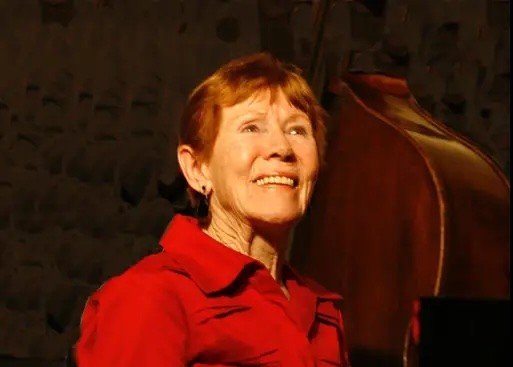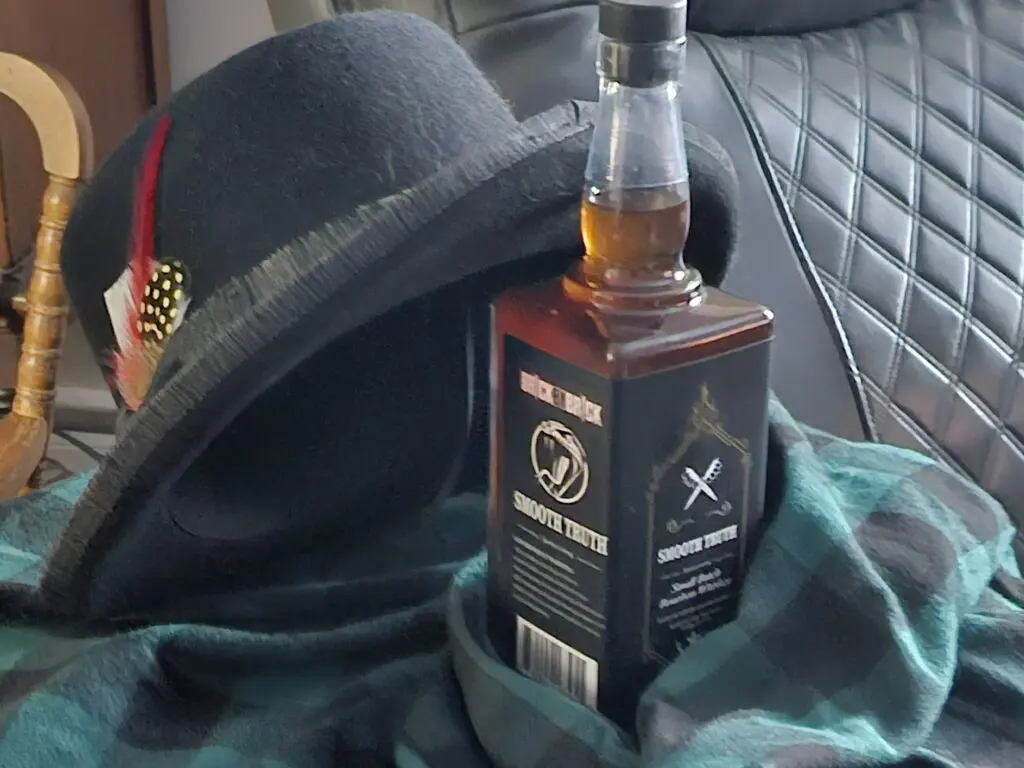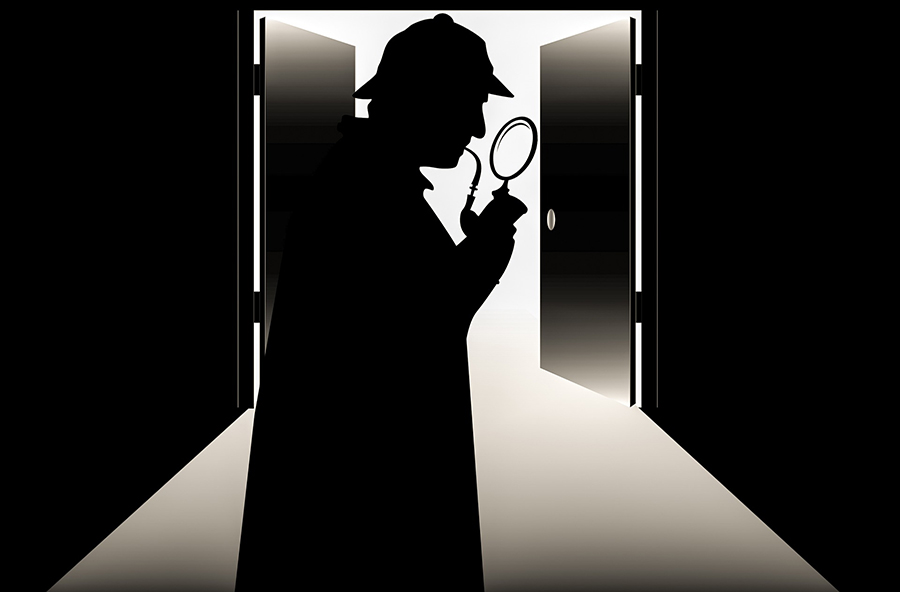Tarik Shah – An Xperience Biography
By Staff on July 11, 2024
Tarik Shah – An Xperience Biography – by Colin Roberts.
“I was working with everybody,” Tarik Shah says. “I was working left, right, and center.” The bass player and host of the Wednesday Night Jazz Jam at 518 Craft in Troy is soft-spoken, quiet, and unassuming, but when one watches him perform, it’s clear there’s something more—in his playing, in his demeanor, even in his look. Playing to a small, engaged audience in the bar weekly, he speaks between numbers, expressing his gratitude and admiration for his band members, and of the joy of playing live, always with a smile on his face.
But it wasn’t that long ago that Shah was an in-demand sideman. The ‘80s and ‘90s were fruitful decades for the bass player, touring the world, playing alongside marquee names like Betty Carter, Abbey Lincoln, and Gloria Lynne, and getting the call for albums by the likes of Pharoah Sanders and World Saxophone Quartet. Shah even got recommended for a gig with Sir Roland Hanna by the legendary bassist Ron Carter himself.
Then in 2005, at 45 years of age, Shah was charged with providing aid for terrorism to which he pled guilty, only after serving over 30 months in solitary confinement. The case against him is cited as an example by journalists and legal groups of the FBI’s biased tactics used to entrap Muslims following the September 11th attacks. He served fifteen years in federal prison and was released in 2018.
“I KNEW WHAT I WANTED TO DO FROM THEN ON”
Shah was born in 1963 in the Bronx, a neighborhood that shaped him as a person and a musician. “I grew up in a really disciplined, strict household; both of my parents being Black Nationalists, both of them joining the Nation of Islam,” he says. “Malcolm was alive at the time; Malcolm X named me.”
The lifestyle may have been strict, but the music was free-flowing. Shah’s older brother, Antoine, was a classically-trained pianist, and his sister Michelle was into groups like the Four Tops, the Stylistics, and the Temptations. A steady stream of jazz music was coming from his parents, his house always filled with music.
“The foundation of it was jazz, and I didn’t reject it,” he says. “I heard Miles Davis, Cannonball Adderley, some John Coltrane. I heard many vocalists like Sarah Vaughan, Gloria Lynne, Dinah Washington, Ella Fitzgerald, Billy Eckstine, Frank Sinatra, Arthur Prysock, Nancy Wilson, Carmen McRae.”
“It was a great gamut of music even before I started playing that I just listened to that I didn’t reject because it was played in the house,” he adds.
Shah’s Uncle Charles would teach him how to play blues bass lines on a guitar—Charles needing Tarik as an accompanist to solo with—and the experience stuck with him. For his 12th birthday, Shah asked for a bass guitar, to which his mother obliged, gifting him his first instrument—a cream-colored Cameo Deluxe electric bass with a Marlboro amplifier—and he took to it immediately. Music became the focal point of his entire youth.
“I knew what I wanted to do from then on,” says Shah. “I stopped watching sports. Everything that took time away from me playing the bass, I didn’t feel like it was worth it anymore because I loved the bass so much.”
Shah found himself drawn to fusion bands like Return to Forever, Mahavishnu Orchestra, and Weather Report, finding influence in bass players like Alphonso Johnson, Ralphe Armstrong, and eventually Jaco Pastorius. He got set up with his first bass instructor named Daryl Morgan, whom Shah describes as a virtuoso on electric bass.
“He really showed me how to develop my technique quickly,” Shah says. “I followed what he told me to do and I was fortunate to have a guy like him as my first teacher. Not somebody in a music store who might have been a guitarist trying to teach bass, or another instrumentalist trying to teach bass. I had a bass player who had as much chops as Jaco Pastorius. Those types of chops, but he didn’t play like him.”
Shah was also taking music in school where his teacher, Mr. Altieri, was not only providing a more formal education in music theory, he was offering the young bass player his first gigs. Alongside Mr. Altieri, the 14-year-old Shah was playing at the Concord Resort Hotel upstate in Kiamesha Lake, learning how to create a set, improvise live, and also how to work professionally.
“During the summer, I would go up to the Concord with him and he would take me and a drummer, and he’d split the union pay between two high school musicians,” he remembers. “In the summertime, I was making $150 a week. Back then that was really good money to do what I loved.”
Throughout his early teens, Shah continued to work and play, and also study with a handful of teachers who helped evolve his skills and technique. By the time he was 16, Shah had begun to play upright bass and was making a living off playing music. That’s when he headed out to Binghamton to study with the great Slam Stewart, a pivotal move in Shah’s development.
“He is the first solo bassist in jazz, as far as solo bass playing melody lines and improv,” he says of his mentor, Stewart. “And the interesting thing about him being a melodic soloist is that he did it all with the bow … and he sang an octave above; really two octaves above what he was playing. That was Slam Stewart. He was a perfect bass player.”
“GETTING HEARD ALL AROUND THE WORLD”
Stewart was a key figure in Shah’s musical development, expanding on the knowledge and experience he had gained from his previous teachers like Daryl Morgan, Rodney Jones, and Ben Brown. The unique style and approach, and Stewart’s wealth of knowledge made its impact. While studying with Stewart, Shah accompanied the master bassist to watch the teacher’s favorite player, Gary Carr perform at SUNY Binghamton.
“It was amazing to me because I hadn’t heard the bass ever played that way,” Shah remembers. “So, Gary is doing these classical things and making the bass sound like a huge violin; the sound sounds so beautiful. That was my first exposure to that type of excellence, from that perspective of the possibilities of what could happen.”
In 1984, Shah appeared on his first record, playing on saxophonist Nat Dixon’s album “Up Front.” It was later that same year that he joined Betty Carter’s band, debuting with the vocalist at the 1984 Saratoga Jazz Festival. With Carter, Shah would tour the world, gaining notoriety as an in-demand bassist and accompanist.
“That’s really the pinnacle point of me being just a bass player used around town to me becoming a better known, world-class bass player in that sense,” he says. “Getting heard all around the world, being on these different jazz festivals all around the world, all around the US, and now other musicians hear me.”
His run with Carter resulted in one of the bassist’s favorite recordings, a live album culled from their 1985 European tour, which included a memorable gig in communist East Berlin. The remainder of the ‘80s on into the ‘90s saw Shah touring with Dakota Staton, Gloria Lynne, and the Duke Ellington Orchestra, and recording albums with artists like Abbey Lincoln and Pharoah Sanders. In 1993, he even played the Presidential Inaugural Ball for Bill Clinton.
For two decades, Shah was a prominent sideman in the jazz world. But in May of 2005, his entire life shifted course when was arrested by the FBI and charged with conspiracy to provide material support to a known foreign terrorist organization, to which he pled guilty after being held in solitary confinement for 31 months.
“JUST DOING WHAT I DO”
“I’ve never been involved in terrorism,” Shah says. Nearly 20 years after his arrest, he maintains his innocence of the crime he was charged with, something that advocacy and legal rights groups agree with. Shah believes the FBI targeted him because of his Muslim faith and of being raised by Black Nationalist parents.
Between 2001 and 2003, two different FBI informants approached Shah, the second one creating a close relationship under the guise of seeking music lessons. The two often spoke of political topics, and though Shah expressed his mistrust and doubt in the American government concerning their actions following the September 11th terrorist attacks, he asserts he never said anything promoting any terrorist activity.
“I gained a lot of trust in him,” Shah says. “So I’m talking to him about what’s in my heart, how I didn’t agree with stuff going on politically. I’m talking to him; I’m not out giving speeches.”
The charge stemmed from Shah’s time spent teaching martial arts in the mosque; somethig he had done for years prior. The FBI linked his teaching of fighting and defense to providing skills to terrorist agents.
“I’m a martial artist; I was teaching martial arts in the mosque and they’re saying, ‘He’s teaching people how to fight,’” says Shah. “I’m teaching martial arts; I’m teaching jiu-jitsu. I’m not taking people out to the gun range. I studied jiu-jitsu since the time I was a little boy. I had a school out in Harlem for 10 years. [I was] just doing what I do.”
In April 2007, after being held in solitary confinement for 31 months, Shah pled guilty. He maintains that he had no intention to plead, but felt that a fair and unbiased trial was not possible in his case. Two months later, he was sentenced to 15 years in federal prison.
“I made a very high plea; a 15-year plea after being held away from people, not being able to prepare for a trial because everything that I said to my lawyers was in a room that they mic’d, and it’s supposed to be privileged,” Shah says. “And they were out terrorizing my associates and my friends who, now that I’m out, now I know all about that. They’ve told me all of what happened to them.”
Shah spent his prison sentence reading and teaching. He taught music as well as how to read Arabic. He wasn’t allowed to hold classes or lead prayer, so he did so on a more one-on-one basis, but always in the open.
“There was a big warning to me, so I used to teach brothers how to read and write Arabic and how to recite the Koran properly, but I would do it one-on-one. Sometimes I’d take two students at a time; the most I would take at a time was three,” he says. “I would do it in the open; I wouldn’t try to hide what I was doing.”
“I nicknamed myself ‘Mr. Compliance;’ that’s the way I got through,” Shah adds. “I was like, ‘I have to deal with this level of compliance to their requests and their so-called laws and stuff like that until I’m free of this madness.”
Shah was released on March 28, 2018. He spent a short time in a halfway house before moving to the Capital District to help take care of his mother, who was diagnosed with Alzheimer’s. He served three years of probation following his release without incident and is now working on getting things back on track.
Shah is playing out when he can, assembling groups under his own name—an entirely different approach from his years as a sideman. He hosts the weekly Jazz Night at Troy’s 518 Craft with a number of rotating musicians playing a set of originals, standards, and lesser-knowns to an immersed audience. There doesn’t seem to be as much work available as there used to be, and he has concerns that some people pass him by because of the stigma of his past. But the bassist is focused on setting things right after a long period of tumult.
“I play the music, I don’t try to overplay the music, and anybody’s job I’m on, I do the best from my 50 years experience as a bassist,” Shah says. “I do the best at giving the best that they can get from me with wisdom and experience inside of their band without trying to overshadow anyone.”
“I’m open to advice from people,” he says, before adding, “and to give advice if they want it.”





 RadioRadioX
RadioRadioX